
Credit available - Click Here for more information
- Average Rating:
- Not yet rated
- Topic Areas:
- Couples Therapy | Relationships | Anxiety | Continuing Education | Mindfulness | Topical Panels | Treatment Planning
- Categories:
- Couples Conference | Couples Conference 2021 | Online Continuing Education
- Faculty:
- Helen LaKelly Hunt, PhD | Caroline S. Welch | Stan Tatkin, PsyD, MFT | Shawn Giammattei, PhD
- Course Levels:
- Master Degree or Higher in Health-Related Field
- Duration:
- 58 Minutes
- Format:
- Audio and Video
- Original Program Date:
- Jun 06, 2021
- Short Description:
- Acting out is a response to anxiety, and such behavior can be targeted to a partner. Methods of assessing and addressing acting out will be covered.
- Price:
- $29.00 - Base Price
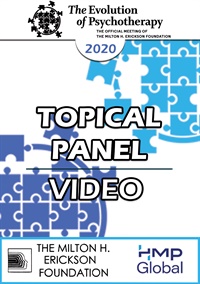
- Average Rating:
- Not yet rated
- Topic Areas:
- Anxiety | Topical Panels
- Categories:
- Evolution of Psychotherapy | Evolution of Psychotherapy 2020
- Faculty:
- Harriet Lerner, PhD | Christine Padesky, PhD | Eli Coleman, PhD
- Course Levels:
- Master Degree or Higher in Health-Related Field
- Duration:
- 1 hour 7 minutes
- Format:
- Audio and Video
- Original Program Date:
- Dec 12, 2020
- Short Description:
- Anxiety is one of the most common problems discussed in psychotherapy. Panelists will discuss it's treatment from perspectives of evidence-based treatment models for anxiety disorders, a systems view of anxiety across the human population, and the impact of anxious attachments stemming from childhood on intimate relationships.
- Price:
-
Sale is $29.00
price reduced from Base Price - $59.00
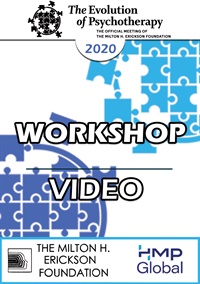
- Average Rating:
- Not yet rated
- Topic Areas:
- Anxiety | Phobia | Obsessive Compulsive Disorder (OCD) | Workshops | Panic
- Categories:
- Evolution of Psychotherapy | Evolution of Psychotherapy 2020
- Faculty:
- David Burns, MD
- Course Levels:
- Master Degree or Higher in Health-Related Field
- Duration:
- 2 hours
- Format:
- Audio and Video
- Original Program Date:
- Dec 09, 2020
- Short Description:
- Dr. Burns will illustrate the ultra-rapid treatment of four cases of incapacitating and intractable anxiety disorders, including a woman with ten years of failed therapy for extreme depression and panic attacks, a woman with twenty years of failed psychoanalysis for the fear of elevators and hallways, a man with more than a decade of incapacitating social anxiety / fear of sweating in public, and a woman with more than twenty years of OCD / germ phobia (the same disorder that haunted the late billionaire, Howard Hughes.)
- Price:
-
Sale is $29.00
price reduced from Base Price - $59.00
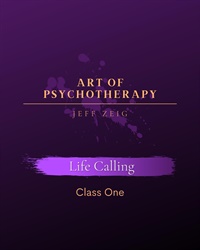
- Average Rating:
- Not yet rated
- Topic Areas:
- Utilization | Clinical Demonstrations | Psychotherapy | Therapist Development | Anxiety | Ericksonian Hypnosis and Therapy Techniques | Religion | Art of Psychotherapy
- Bundle:
- Art of Psychotherapy - Utilization Series
- Categories:
- Art of Psychotherapy
- Faculty:
- Jeffrey Zeig, PhD
- Course Levels:
- Master Degree or Higher in Health-Related Field
- Duration:
- 2 Hours 22 Minutes
- Format:
- Audio and Video
- Original Program Date:
- Jun 21, 2020
- Short Description:
- In our first session, our demonstration subject has recently made a major life change. They have decided to change their career from being a priest, into becoming a therapist. Big life changes like these often induce anxiety in patients, and in this clinical demonstration we see Dr. Jeffrey Zeig exhibit a number of Ericksonian techniques to help the client be in harmony with themselves. Dr. Zeig utilizes some of Ginny’s religious history to help guide her towards transformation.
- Price:
- $79.00 - Base Price
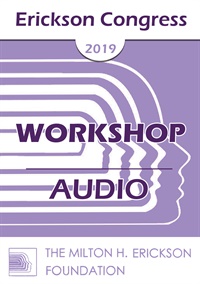
- Average Rating:
- Not yet rated
- Topic Areas:
- Workshops | Anxiety | Cognitive Behavior Therapy (CBT) | Hypnosis | Mindfulness | Worry
- Categories:
- Erickson Congress | Erickson Congress 2019
- Faculty:
- Carolyn Daitch, PhD
- Duration:
- 2 Hours 2 Minutes
- Format:
- Audio Only
- Original Program Date:
- Dec 15, 2019
- Short Description:
- Anxiety destroys the normal enjoyment of life through the fear, worry, obsessive thinking and avoidant behavior that anxious people experience. Simple activities like going to the grocery store, taking a child to her first day of school, or meeting a friend for lunch trigger a barrage of frantic “what ifs.” This demonstration will explore the subtleties of working with this pervasive category of disorders, and will introduce a powerful, integrative therapy model.
- Price:
- $15.00 - Base Price
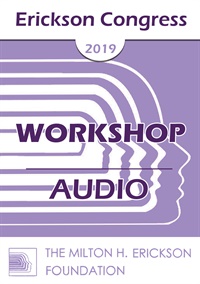
- Average Rating:
- Not yet rated
- Topic Areas:
- Workshops | Anxiety | Milton Erickson | Virginia Satir | Somatic Experiences | Hypnotherapy | Resources
- Categories:
- Erickson Congress | Erickson Congress 2019
- Faculty:
- Wei-Kai Hung, M.Ed., L.M.H.C., L.P.C. | Eva Wieprecht, MBA
- Duration:
- 1 Hour 58 Minutes
- Format:
- Audio Only
- Original Program Date:
- Dec 15, 2019
- Short Description:
- In this workshop, East and West blend, intertwine, and approach anxiety symptoms in a creative way. Eva from Germany, with her masterful practice in Satir somatic modeling, combined with Wei Kai from Taiwan, with his mindful practice in Tai Chi and Taoism hypnotherapy, will create a new model in treating anxiety. We both learned Ericksonian approach for years, and utilized various somatic movements to help self regulation, and increase self steering competencies in challenging times.
- Price:
- $15.00 - Base Price
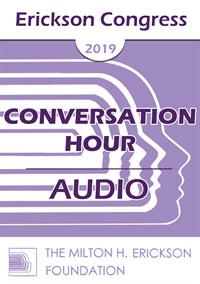
- Average Rating:
- Not yet rated
- Topic Areas:
- Conversation Hours | Anxiety | Children and Adolescent Therapy
- Categories:
- Erickson Congress | Erickson Congress 2019
- Faculty:
- Lynn Lyons, LICSW
- Duration:
- 1 Hour
- Format:
- Audio Only
- Original Program Date:
- Dec 14, 2019
- Short Description:
- Many clinicians focus on breathing, calming, or other distraction techniques when dealing with anxious children. However, focusing on "getting rid of the worry" often backfires, and leaves children and teens feeling more hopeless than engaged. But, when we use short "relaxation" practices with children to shift their patterns and beliefs--when we use this time of focus to deliver and seed valuable information--we create great opportunities for change, engagement, and skill-building. In this hour, I'll describe the tricks to getting the most out these exercises, without stepping into the trap of elimination.
- Price:
- $15.00 - Base Price
Tags: Adolescents Anxiety Children
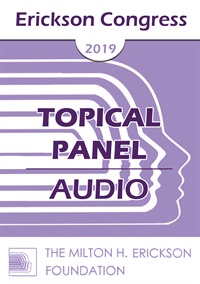
- Average Rating:
- Not yet rated
- Topic Areas:
- Topical Panels | Anxiety | Obsessive Compulsive Disorder (OCD)
- Categories:
- Erickson Congress | Erickson Congress 2019
- Faculty:
- Carolyn Daitch, PhD | Joseph Dowling, MS, LPC | Gary Ruelas, DO, PhD | Reid Wilson, PhD
- Duration:
- 59 Minutes
- Format:
- Audio Only
- Original Program Date:
- Dec 13, 2019
- Short Description:
- Anxiety disorders are among the most common reasons that patients seek therapy. Hypnotic processes have been empirically validated to treat anxiety disorders including obsessive-compulsive illness.
- Price:
- $15.00 - Base Price
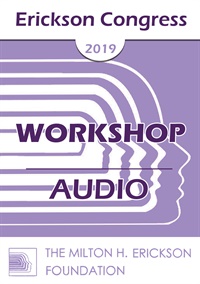
- Average Rating:
- Not yet rated
- Topic Areas:
- Workshops | Anxiety | Family Therapy | Homework | Children and Adolescent Therapy | Experiential Therapy
- Categories:
- Erickson Congress | Erickson Congress 2019
- Faculty:
- Lynn Lyons, LICSW
- Duration:
- 1 Hour 56 Minutes
- Format:
- Audio Only
- Original Program Date:
- Dec 13, 2019
- Short Description:
- After decades of working with anxious children and teens, I have two unshakable truths: families MUST be involved in treatment and anxious patterns are shifted through experiential learning. Working with the FOUR critical concepts to manage anxiety in families and the SIX patterns that must be interrupted, this workshop will describe HOW to create active, engaging assignments for families to do between sessions and describe the TEN favorites that I return to again and again.
- Price:
- $15.00 - Base Price
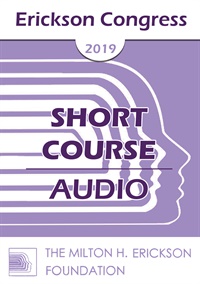
- Average Rating:
- Not yet rated
- Topic Areas:
- Short Courses | Anxiety | Depression | Ericksonian Hypnosis and Therapy Techniques | Children and Adolescent Therapy | Eye Movement Desensitization and Reprocessing (EMDR) | Hypnosis | Cognitive Behavior Therapy (CBT)
- Categories:
- Erickson Congress | Erickson Congress 2019
- Faculty:
- Joseph Sestito, MSSA, LISW-S
- Duration:
- 1 Hour 33 Minutes
- Format:
- Audio Only
- Original Program Date:
- Dec 12, 2019
- Short Description:
- The first factor that is of central importance is developing a strong therapeutic alliance with the client, mainly through empathically relating to him/her. Second, it will be shown how to guide adolescents and younger children to identify the specific Activating Event (AE) that is bringing about their unhealthy negative emotions through triggering self-defeating cognition(s).
- Price:
- $15.00 - Base Price
Please wait ...

